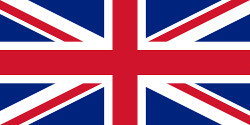
United Kingdom
| Full Name | 3 United Kingdom of Great Britain and Northern Ireland | |
| Alliance | Allies - Major Member Nation | |
| Entry into WW2 | 3 Sep 1939 | |
| Population in 1939 | 47,760,000 | |
| Military Deaths in WW2 | 382,600 | |
| Civilian Deaths in WW2 | 67,800 |
Contributor: C. Peter Chen
ww2dbaseThe horrors of World War I remained in the minds of the British, thus in the 1930s, the leaders of the United Kingdom did all they could to avoid another war. In 1937, appeaser Neville Chamberlain was appointed Prime Minister, who worked along that philosophy. With the backing of many of his peers, as well as contemporaries in other European nations, Chamberlain gave in to Adolf Hitler's increasingly aggressive demands. Some of them even viewed Nazi Germany as a potential future ally to fight the expansionist communist philosophy. Appeasement was not unopposed, however. Some Members of Parliament, notably Winston Churchill, preached that Hitler must be dealt with before Germany threatened peace, but he was not able to sway public opinion enough to change the United Kingdom's diplomatic philosophy. After the fall of Poland and at the same time of the German invasion of France, Chamberlain realized his appeasement attempts truly had failed, and resigned from his post. Churchill was appointed his successor and led the United Kingdom for the remainder of the war.
ww2dbaseWith the support the Commonwealth allies such as Canada, Australia, India, and others, Churchill aimed to maintain presence in North Africa so that the United Kingdom could search out for an opportunity to strike Italy and the Balkans, the weak underbelly of Europe, into the heart of Axis. Meanwhile, the existence of Britain itself was threatened as the Battle of the Atlantic slowly cut away the imports Britain needed to survive. Franklin Roosevelt, the President of the United States, helped by means of the Lend-Lease program, but that could only go so far.
ww2dbaseThe war situation began to change after the United States entered the war after the Pearl Harbor attack. Although the loss of Malaya and Singapore was disheartening and Australia now became in danger of being attacked by Japan, the United States was now an ally in war. It took the United States some time to begin churning her industrial capability, but when she did, the tides of war began to change in favor of the United Kingdom. The American involvement in North Africa helped expelling German and Italian forces from the region, and from there the invasion of Sicily toppled Benito Mussolini's regime. As the Italian Campaign very slowly pushed the German forces back, the Americans persuaded the British to commence a cross-Channel invasion on France, which Churchill, advocate of going through Southern Europe, at first opposed but eventually had to give in. The campaign in France marked the beginning of the end of Germany.
ww2dbaseIn the east, after losing Malaya and Singapore, the United Kingdom also lost Burma to the Japanese. The Japanese Navy posed a threat, too, after its successful excursion into the Indian Ocean. But the Commonwealth of India supported by the United Kingdom held fast, preventing Japan from entering India.
ww2dbaseWhen WW2 ended, the United Kingdom emerged victorious but she was financially damaged. She began losing influence over her overseas possessions one by one, while the United States seemed to have picked up the role of the world leader that the United Kingdom had once held.
ww2dbaseSource: Wikipedia.
Last Major Update: Apr 2007
| Events Taken Place in United Kingdom | ||
| Second London Naval Conference | 21 Jan 1930 - 22 Apr 1930 | |
| Anglo-German Naval Agreement | 18 Jun 1935 | |
| Third London Naval Conference | 9 Dec 1935 - 25 Mar 1936 | |
| Hoare-Laval Pact | 10 Dec 1935 | |
| Polish-British Common Defense Pact | 25 Aug 1939 | |
| Operation Peking | 29 Aug 1939 - 1 Sep 1939 | |
| British Pet Massacre | 3 Sep 1939 - 11 May 1941 | |
| Enigma Code Broken | 14 Jan 1940 | |
| Anti-Italian Riots | 10 Jun 1940 | |
| British Attacks on the French Fleet | 3 Jul 1940 - 25 Sep 1940 | |
| Battle of Britain | 10 Jul 1940 - 31 Oct 1940 | |
| Arctic Convoys | 21 Aug 1941 - 30 May 1945 | |
| Operation Mincemeat | 30 Apr 1943 | |
| Exercise Tiger | 22 Apr 1944 - 28 Apr 1944 | |
| Operation Frantic | 2 Jun 1944 - 22 Sep 1944 | |
| V-Weapons Campaign | 13 Jun 1944 - 30 Mar 1945 | |
| Operation Aphrodite and Operation Anvil | 4 Aug 1944 - 1 Jan 1945 | |
| Territories, Possessions, and Nations Under the Influence of United Kingdom | ||
| Aden | Brunei | Malaya |
| Australia | Burma | Malta |
| Bahamas | Canada | Muscat and Oman |
| Bahrain | Ceylon | Nauru |
| Barbados | Christmas Island | New Hebrides |
| Bermuda | Fiji | New Zealand |
| British Cameroons | Gibraltar | Newfoundland |
| British Guiana | Gilbert and Ellice Islands | North Borneo |
| British Leeward Islands | Guernsey | Sarawak |
| British Palestine | Hong Kong | Singapore |
| British Somaliland | India | South Africa |
| British West Africa | Jamaica | Tonga |
| British Western Pacific Territories | Jersey | Trinidad |
| British Windward Islands | Kenya | |
| Facilities | ||
| 10 Downing Street | Government Building | |
| Bletchley Park | Other | |
| Danesfield House | Other | |
| Debach Airfield | Air Base | |
| Old Buckenham Airfield | Air Base | |
| RAF Newchurch | Air Base | |
| RAF Thurleigh | Air Base | |
| RAF Woodhall Spa | Air Base | |
| ROF Chorley | Factory | |
| Scapa Flow | Navy Base | |
Weather
WW2-Era Weather Data for United Kingdom
Photographs
 | 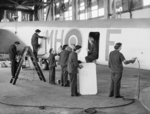 | 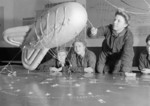 | 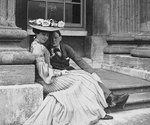 |
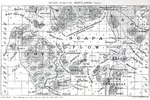 | 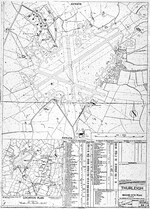 |
United Kingdom in World War II Interactive Map
Please consider supporting us on Patreon. Even $1 per month will go a long way! Thank you. Please help us spread the word: Stay updated with WW2DB: |
Visitor Submitted Comments
7 Dec 2007 02:22:54 AM
Though members of the Commonwealth, nations such as Australia, New Zealand, and Canada were independent countries and to just toss them into the UK basket does disservice to 1,000s of those who served and died for their countries.
14 Mar 2008 03:33:39 AM
Like Stannous Flouride, its disappointing to see you not recognising properly the large sacrifice that the commonwealth (Britsh Empire) made to the War Effort both militarily and economically. Militarily the countries of the empire/commonwealth served in Battle of Britain, Greece and then North African Campaign and then later and Northern Europe, South East Asia and the Pacific. The Pacific Theatre had little British involvement after the loss of Singapore. To discount the Military losses of Canada (45,300), Australia (39,400),New Zealand and South Africa (11900 a piece), is disappointing. Why can't this be fixed?
14 Mar 2008 05:32:00 AM
Hey there Stannous Flouride and Matt, just want to let you guys know that I've read your comments regarding the Commonwealth nations. I've recently added Canada to the countries list, and a fellow contributor, Morgan, is working on the profile for Australia. More will be forth coming!
This particular page will always stay UK itself only. Please go to the country listing page for the Commonwealth nations.
4 Dec 2008 02:47:57 AM
Sir,
No offence but I believe India ought to be included, if not as a seperate entity, then perhaps as British India. But I doubt, if my countrymen would be okay with that.
25 May 2009 04:18:40 PM
Did you know,that England still had shortages and rationing until 1950.
15 Jun 2009 10:33:46 AM
In Britian,the Yanks were said to be:
"Overpaid, Oversexed, Overfed and Overhere."
The Americans countered this, by saying:
The Brits were "Undepaid, Undesexed, Underfed
and Under Eisenhower."
15 Jun 2009 03:27:39 PM
For #7 I was in error in spelling.
In Britian, the Yanks were said to be:
"Overpaid, Oversexed, Overfed and Overhere."
The Americans countered this by saying:
The Brits were "Underpaid, Undersexed, Underfed and Under Eisenhower".
20 Jun 2009 08:30:04 PM
Correction #6 May 25,2009
Rationing: Food and fuel shortages continued
after the end of World War II, rationing did
not end until 1954, by which time even bread
was rationed.
However, the postwar years saw the start of
the Welfare State, with such benefits as free
health care and family allowances.
Did you know: By the time the wae ended the number of women workers had grown to two
million, and they made up 43% of the total
work force. Returning back to regular post-
war life was difficult and hard, and the
divorce rate soared.
During the war, about 200,00 men were kept in
reserve,such as farming and many women worked
war production. At first the Government relied on women to volunteer but by 1941 the
Government introduced conscription! they were
drafted!! All women age 18 through 60 had to
register married or single, for war work and
could be assigned to work in factories or in
agriculture, or auxillary services
Despite their valuable contributions, women
were not given equal pay with men.
A total of 22,000,000 men and women served in
the armed forces, war production and civil
defence in 1943.
Everyone had to carry an ID card supplies of
food, fuel and water were restricted, and
food rationing started in January,1940 every
household was issued a ration card and by
law was regestered with local shops.
Most people felt the rationing was fair and
some people ate better than they had during the drpression, However shortages were felt
everywhere clothes, stockings, cosmetics and
other consumer goods disappeared.
When I went to England in 1967, World War II
had ended twenty two years ago, and at that
time you could travel around London and still see damaged and bombed out buildings.
It has taken decades for Western Europe to rebuild itself.
Berlin is known today, as the city of seven
hills. The hills were from the debris of the
thousands of buildings destroyed, creating the seven hills.
30 Mar 2010 06:43:25 PM
Wartime Life in England
July 1939 petrol was rationed to 200 miles
per-week.
1940 building of automobiles stopped.
1942 pertol for private use was stopped.
Average wage:
Men in 1939 was three pounds, nine shillings.
Women wages in 1939 one pound, twelve shillings.
Enlisted servicemen were paid two shillings a
day.
Bottle of whiskey 13 shillings and sixpence.
Price of Gold, 8 pounds, or(sixteen dollars an ounce in 1940 dollars).
Eggs were rationed two eggs per-person per week.
All food stuff fresh ,canned, dry foods and just about all consumer goods. But there was always a black market for anything if one had the money.
30 Sep 2011 02:11:16 AM
I can recall that during the early 50s in Ulster I had to have a coupon to purchase a bar of confectionary.
8 Oct 2011 05:33:22 PM
For thorough stats on civilian deaths, rationing, home front issues, volunteer organization, survivors of the Blitz, and depth of topics similiar to above I refer everyone to the book 'Wartime Britain 1939-1945' by Juliet Gardiner.
14 Mar 2013 03:39:46 AM
No6: Bill, England is not Britain, not sure why people continue to refer to our island as England, it never has been an island called England & as sure as the sun comes up in the morning, it never will!
24 Nov 2017 05:08:27 AM
British has fought over a hundred wars, but has never worn any. She even lost independence wars to smaller and very weak African states like Uganda, Kenya etc. Shame on her.
8 May 2020 12:32:27 PM
Losses of lives to save the British and the world from Nazis
==========
UK: 1% of its wartime population(=48Millions)
Armenia: 20% of its wartime population (1.5Millions)
UK has never judged wartime criminals of Turks who committed the Armenian Genocide comprising genocide against all of its Christian population...because they "had to" save one brittish officer from turkish hands...UK government is still denying the Armenian Genocide...BBC is still using quotes use a relativistic quotation when it refers to the Armenian Genocide. It is a shame on Britain's honor to continue Chamberlain's appeasment policy in regards to denialist Turkey. Turkey did not offer turkish lives to save british lives in WW2.
All visitor submitted comments are opinions of those making the submissions and do not reflect views of WW2DB.
- » Japanese Emperor Visited Iwoto (Iwo Jima) (8 Apr 2025)
- » Race, Holocaust, and African-American WW2 Histories Removed from the US Naval Academy Library (7 Apr 2025)
- » US Government Plans to Purge WW2 Information (17 Mar 2025)
- » WW2DB's 20th Anniversary (29 Dec 2024)
- » See all news
 |
- » 1,167 biographies
- » 337 events
- » 44,601 timeline entries
- » 1,243 ships
- » 350 aircraft models
- » 207 vehicle models
- » 376 weapon models
- » 123 historical documents
- » 261 facilities
- » 470 book reviews
- » 28,501 photos
- » 366 maps
Winston Churchill, 1935
Please consider supporting us on Patreon. Even $1 a month will go a long way. Thank you!
Or, please support us by purchasing some WW2DB merchandise at TeeSpring, Thank you!
30 Sep 2007 12:53:25 AM
The number of British Civilian deaths (varies from different sources) were in the region of c.60,500 from enemy bombing plus 30,248 merchant mariners. These figures do not include the large number of fatalities indirectly due to the war (Industrial and Mining accidents, Traffic accidents caused by the Black out etc).